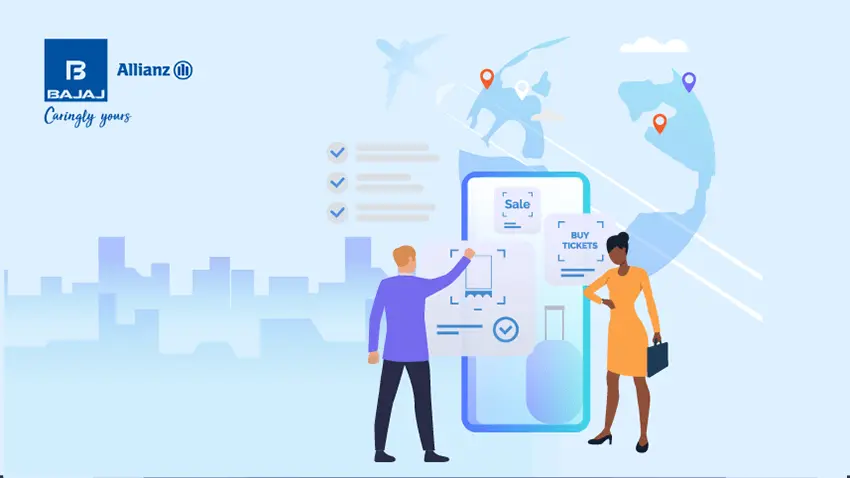If you're gearing up for an international adventure, understanding the ins and outs of visas is essential. While visas are often discussed, the significance of the accompanying visa number might be overlooked. This guide aims to demystify the visa number, shedding light on its critical role in facilitating global travel. Whether you're pursuing professional opportunities, educational endeavours, or simply exploring new cultures, understanding the importance of your visa number ensures a smoother journey ahead.
What is the Meaning of a Visa Number?
Let's start with the basics. A visa number is an essential piece of information found on your visa. It's an 8-digit number, usually coloured in red, located in the lower right-hand corner of the visa. In older visas issued before 2000, the number used to have 6 digits and was located near the abbreviation for "number" in blue at the top centre of the visa.
Who Requires a Visa Number?
Anyone planning to work or study abroad needs a visa number. Whether you're pursuing a job opportunity or enrolling in a university overseas, your visa number serves as a unique identifier. However, temporary visitors or nonimmigrants to the U.S. may not need a visa number if they qualify for the visa waiver program. This program allows certain visitors to enter the U.S. for a specified period without obtaining a traditional visa.
When is a Visa Number Required?
You'll need to provide your visa number in various situations, including when starting a new job or joining a school in America. Your visa number helps verify your identity and the purpose of your visit. Additionally, if you're applying for permanent resident status, you'll need your visa number to complete the process. Without a valid visa number, gaining entry to the U.S. may be challenging.
Where is the Visa Number Shown?
Your visa number is displayed on the visa stamp affixed to your passport. Every time you enter the U.S., immigration authorities will verify your visa number to ensure compliance with visa regulations.
When is a Visa Number Not Required?
Not all travellers need a visa number to visit the U.S. Visitors from countries participating in the Visa Waiver Program (VWP) can enter the U.S. for business or tourism purposes without a visa for up to 90 days. However, it's essential to note that not all countries are part of the VWP. For example, India is not a member nation, so Indian visitors must obtain a visa before travelling to the U.S.
Additional Details on Visa
Along with the visa number, your U.S. visa contains other important information, including:
- Issuing Port Name: The U.S. Embassy where the visa was approved.
- First & Last Name: Your full name as it appears on your passport.
- Sex of the Migrant: Whether you're male or female.
- Nationality: Your country of origin.
- Date of Birth: Your birthdate.
- Passport Number: Identification number on your passport.
- Type of Visa: The specific visa type you've applied for (e.g., H-1B, B-1, K-1).
- Entries: Indicates whether your visa allows single or multiple entries to the U.S.
- Date of Issuance: The date when the visa was issued.
- Validity: The expiration date of your visa.
- Annotations: Additional notes from the U.S. Consular Officer, such as the name of your university or employer.
What if I am Denied the Visa Number?
Facing visa rejection can be disheartening, but it doesn't have to derail your plans entirely. If your visa is denied through no fault of your own, consider purchasing travel insurance. With a comprehensive visa
travel insurance plan, such as those offered by
Bajaj Allianz General Insurance Company, you can protect yourself financially. If your visa is denied, you may be eligible for reimbursement of the visa fee, provided you've submitted all required documents correctly.
Also Read: Travel Insurance: Your Essential Guide to Stay Protected While Traveling
Conclusion
In conclusion, understanding the significance of your visa number is crucial when travelling abroad, especially to the United States. Whether you're seeking employment opportunities, pursuing education, or simply exploring new destinations, your visa number plays a vital role in the immigration process. By familiarising yourself with the visa requirements and ensuring you have the necessary documentation, you can start your journey with confidence.
Are you planning a trip overseas? Don't forget to
compare travel insurance plans to find the coverage that best suits your needs. Safe travels!
FAQs
1. Is the visa number the same as the visa application number?
No, the visa number is not the same as the visa application number. The application number is assigned during the application process, while the visa number is issued after the visa has been approved.
2. Can I travel without knowing my visa number?
While you can travel if you have a valid visa in your passport, knowing your visa number is essential for filling out immigration forms, registering online applications, and other official documentation.
3. What should I do if my visa number is illegible or missing?
If your visa number is illegible or missing, contact the embassy or consulate that issued your visa. They can verify your details in their database and provide guidance.
4. Does the visa number change for renewals or extensions?
Yes, a new visa number is issued when your visa is renewed or extended. It is tied to the specific visa issuance and does not carry over to future visas.
5. Can I verify my visa details using the visa number?
Yes, many countries provide online services to verify visa details using your visa number. Check the official immigration website of the issuing country for these services.
*Standard T&C apply
Insurance is the subject matter of solicitation. For more details on benefits, exclusions, limitations, terms, and conditions, please read the sales brochure/policy wording carefully before concluding a sale.
 Service Chat:
Service Chat: 


Leave a Reply